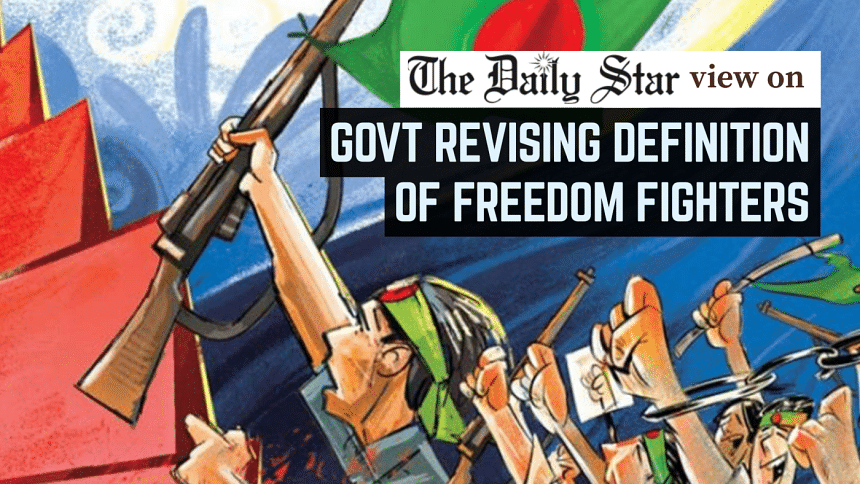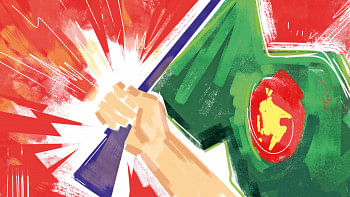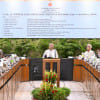How is this a priority for the government?

We are surprised to learn of the promulgation of the National Freedom Fighters Council (Amendment) Ordinance-2025 that replaces the National Freedom Fighters Council Act-2022, redefining some key aspects related to the Liberation War. At a time when the nation is navigating an extremely fragile transition to democracy, this adds yet another element of confusion and controversy that we could do without. Codifying a more restrictive, combat-oriented definition of freedom fighters (FFs) and the war itself might seem justified in an ideal sense, especially given the history of political exploitations under Awami League. But it also reflects a potential reframing of national memory that no bureaucracy should be entrusted with.
It's true that much of the initial confusion about the ordinance stemmed from flawed reporting, particularly erroneous claims about the "revocation" of the recognition of Bangabandhu Sheikh Mujibur Rahman, Tajuddin Ahmad, and other national heroes as freedom fighters. But partly responsible for it is the redefinition of a "freedom fighter" and the introduction of three new categories, including that of an "associate of the Liberation War"—thus dividing all previously recognised under the broad term of freedom fighters into distinct groups. For example, all Members of the National Assembly (MNAs) and Members of the Provincial Assembly (MPAs) who were aligned with the wartime provisional government and later became members of the Constituent Assembly will now be considered "associates," whereas those who led the provisional government will continue to be recognised as FFs. These categories overlap in some cases, and exclude in others, creating grounds for ambiguities.
While the reclassification may not affect the benefits received by freedom fighters or their families—as later clarified by the adviser to the Ministry of Liberation War Affairs—the real question is: was this reframing, and the symbolic rollback of recognition for some, necessary at all? If there are concerns about "fake" freedom fighters, this approach will certainly not help. On the contrary, it piles on existing bureaucratic workload by necessitating fresh examinations of status. By defining a "freedom fighter's family" strictly as their spouse, son, daughter, father, or mother, the ordinance appears to align with the post-uprising restructuring of job quotas that no longer extend to their grandchildren. But again, these objectives could have been pursued without wading into what some perceive as a revisionist attempt. At the very least, the government could have consulted with political parties to generate consensus on such a divisive issue.
The government has interfered in such historical matters in the past as well. Instead of doing what is ideally the responsibility of historians or society at large, we feel the interim government, which by definition is meant to do only crucial tasks, should focus on more urgent and present-day reforms that the nation is eagerly waiting to see. And whatever it does, it should stop bringing a top-down approach to critical reforms.


 For all latest news, follow The Daily Star's Google News channel.
For all latest news, follow The Daily Star's Google News channel. 










Comments